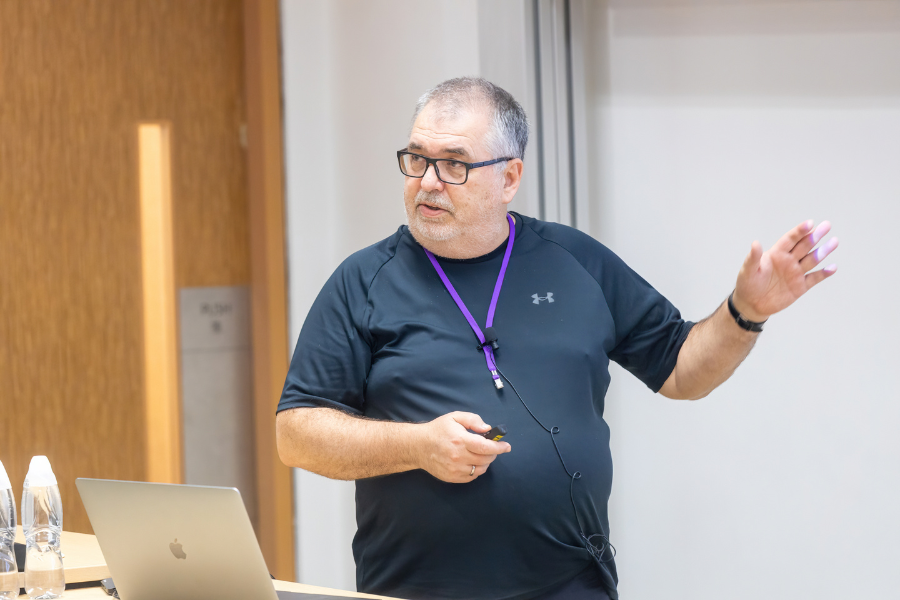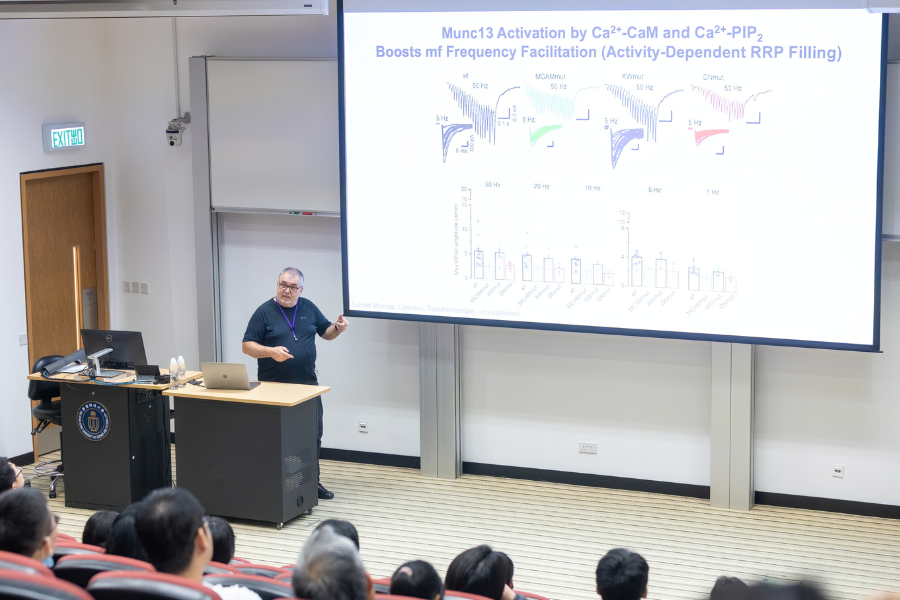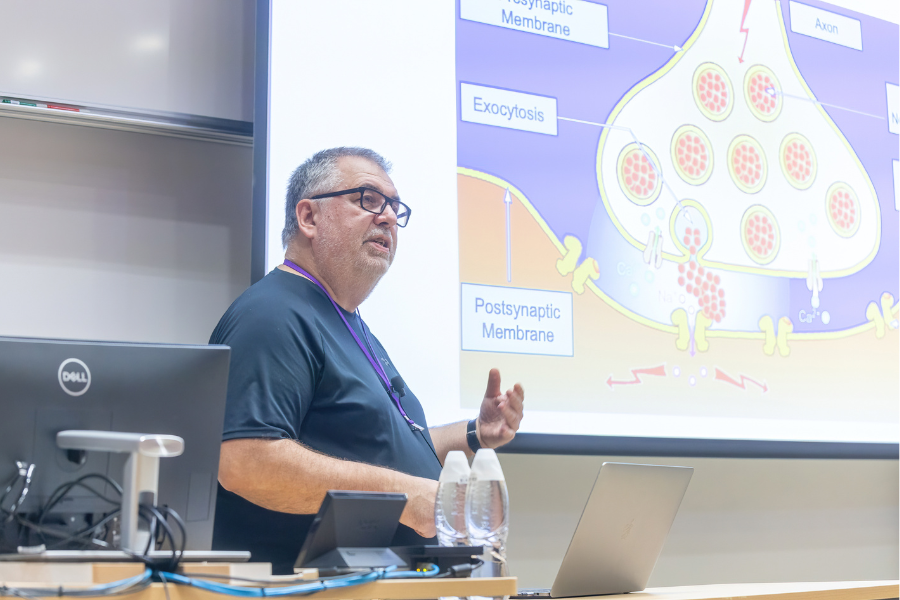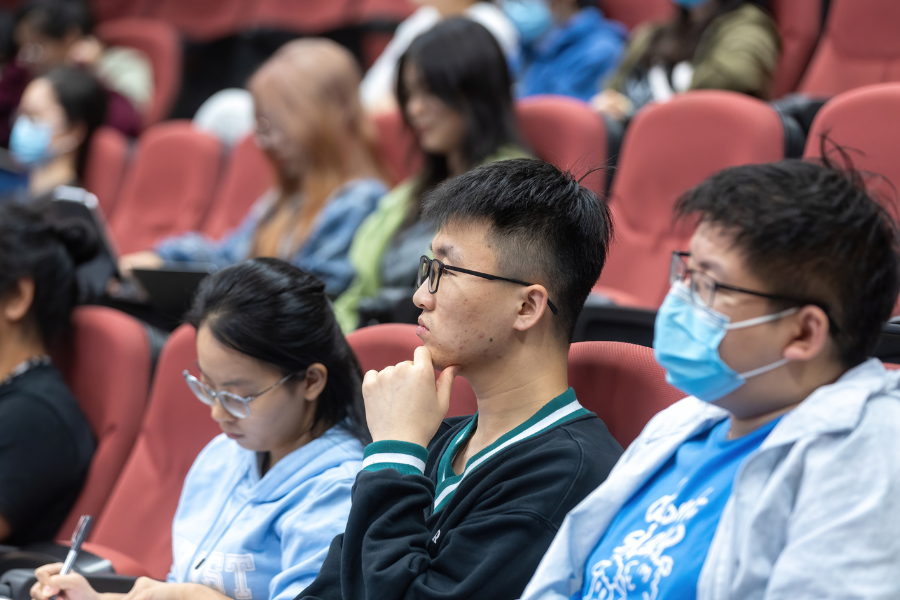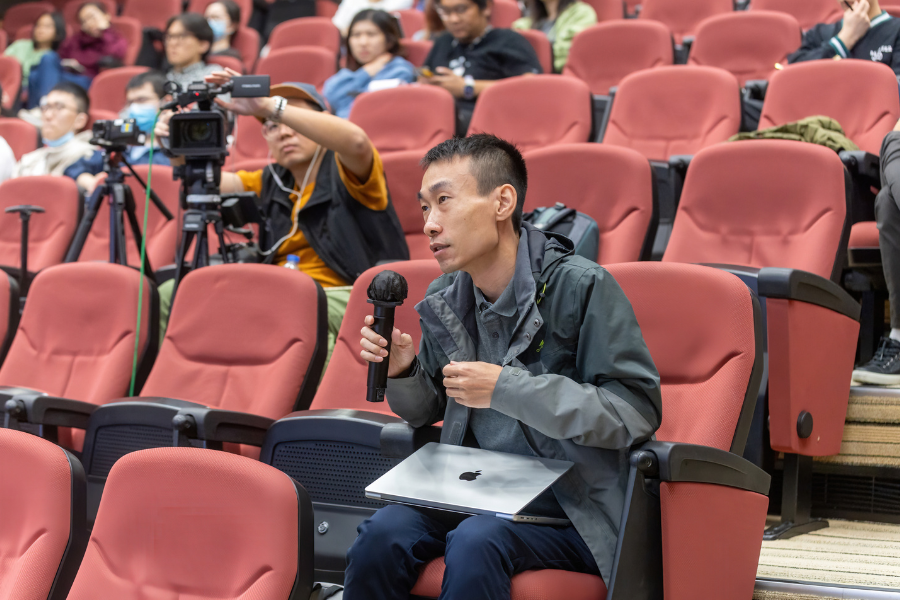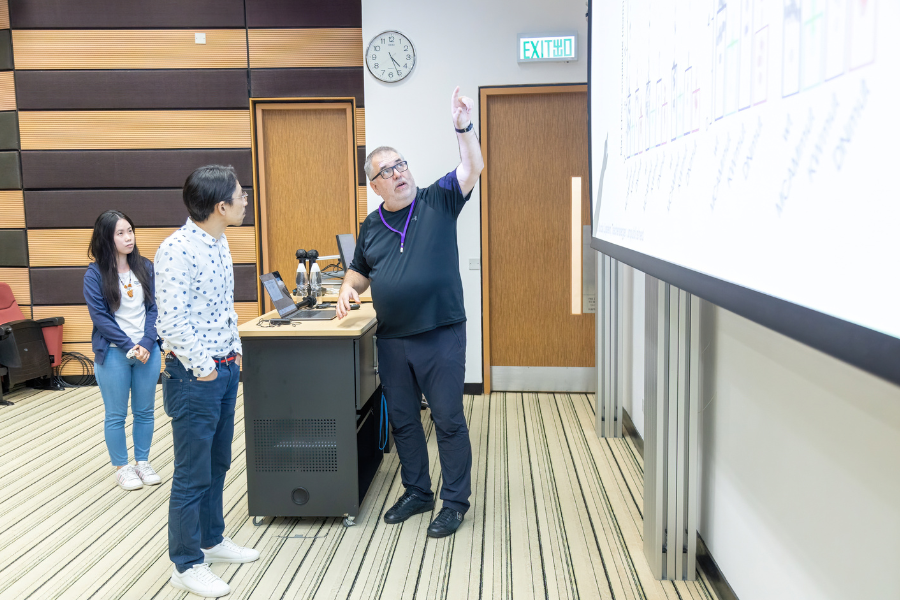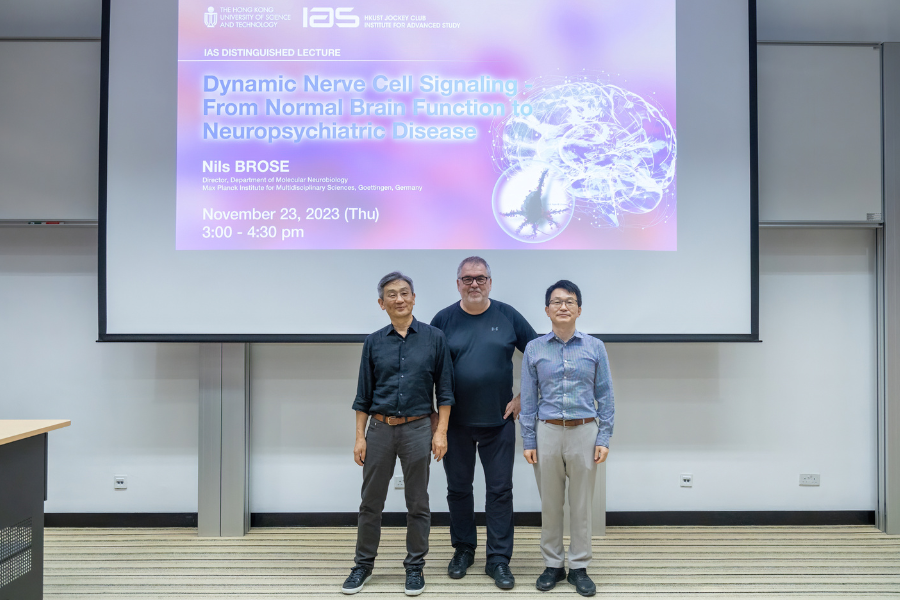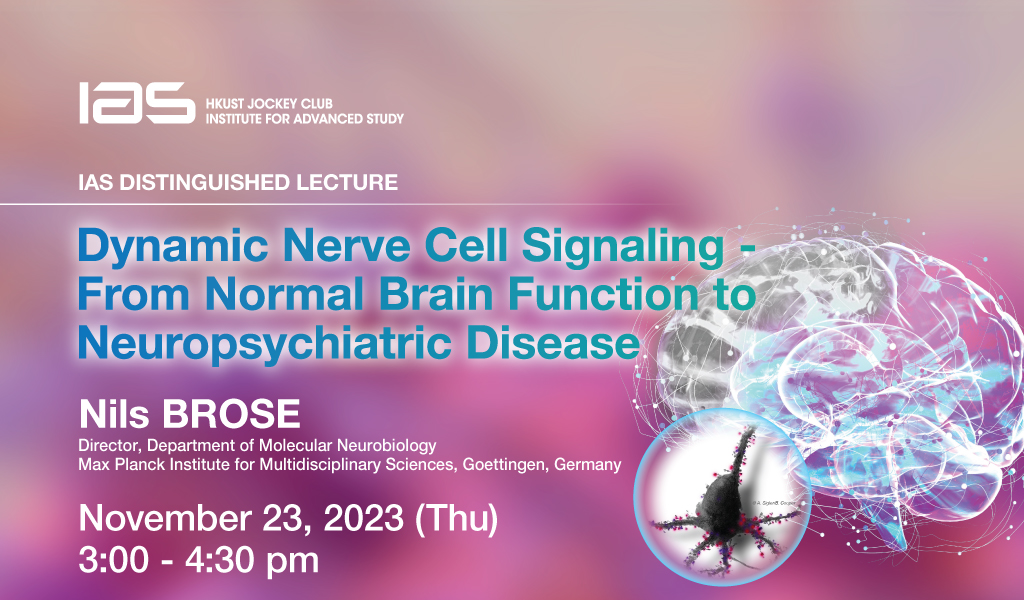Dynamic Nerve Cell Signaling - From Normal Brain Function to Neuropsychiatric Disease
Abstract
Signaling between nerve cells in the brain takes place at synapses, specialized cell-cell contacts at which sending nerve cells release small neurotransmitter molecules upon electrical stimulation, which are sensed by receiving nerve cells that regenerate an electrical signal. Synapses are thus the core signaling units in all nerve cell circuits in the brain. They permanently transduce electrical signals, in the form of so-called action potentials, into chemical signals, in the form of released neurotransmitters, and back into electrical signals - and thereby control all body functions, from simple movements to complex cognitive feats. A central feature of synapses in this context is the exquisite speed and fidelity by which they operate, as well as their ability to dynamically adapt their strength to the current functional requirements of a given circuit. These temporal and plastic characteristics of synapses are chiefly determined by the neurotransmitter release machinery, a complex assembly of proteins that control the provision - or the priming - of fusion-ready transmitter-filled synaptic vesicles and their electrically triggered fusion with the synaptic plasma membrane to release their transmitter content. The speaker will discuss (i) which molecular and cellular mechanisms are at the basis of the neurotransmitter release process, (ii) how regulatory inputs convey plasticity to this process and endow different synapses with unique functional features by controlling synaptic vesicle priming, and (iii) why genetic aberrations in this process cause multiple neuropsychiatric disorders.
About the speaker
Prof. Nils Brose received an MSc degree in physiology from the University of Oxford (UK) in 1987 and a PhD degree in Biology from the Ludwig Maximilians University in Munich (Germany) in 1990. After post-doctoral work at the Salk Institute in La Jolla, CA (USA) and at the University of Texas Southwestern Medical Center in Dallas, TX (USA), he relocated to Goettingen (Germany) in 1995 to establish an independent research program. Since 2001, he has been the Director of the Department of Molecular Neurobiology at the Max Planck Institute for Multidisciplinary Sciences in Goettingen (Germany).
Prof. Brose's research group focuses on the molecular mechanisms of nerve cell development and synapse formation and function in the vertebrate central nervous system. They combine biochemical, morphological, mouse genetic, physiological, and behavioral methods to elucidate the molecular basis of nerve cell differentiation, synapse formation, transmitter release, and postsynaptic transmitter sensing. In multiple cases, they explore the dysfunction of corresponding biological processes in neuropsychiatric diseases. Key discoveries include the identification of Synaptotagmin as an exocytotic calcium sensor on synaptic vesicles, the elucidation of Munc13 function in synaptic vesicle priming and synaptic plasticity, and the identification of multiple neuropsychiatric disease mechanisms that involve mutations in proteins that control neuronal synapse formation and function.
For Attendees' Attention
Seating is on a first come, first served basis.

